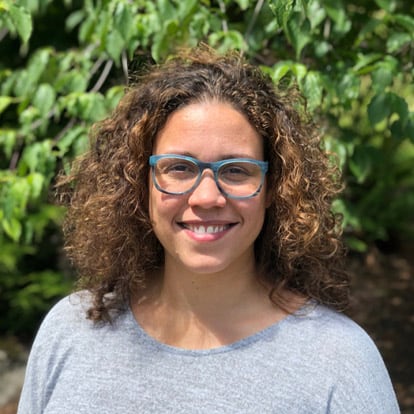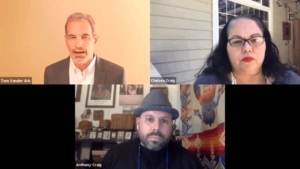Getting Clearer: Decolonizing Education
Key Points
-
In the name of liberation, intentional disruption, and empowering the brilliance and souls of our young-people, Kelly Niccolls has been working towards decolonizing education.
-
What are the tools being used to break structures?
-
What are the resources assisting the journey to liberation?

This is a three-part series exploring colonial education circumstances.
For years I have been an education futurist, scheming ways we can “decolonize” the American education institution. In the name of liberation, intentional disruption, and empowering the brilliance and souls of our young people, I have been working towards decolonizing education. You know, breaking down the structures and freeing us from the patriarchal, white, western colonization of our education institutions and centering students, families, communities and meaningful learning. Is that actually an effort towards decolonization? What are the tools being used to break structures? What are the resources assisting the journey to liberation? Is decolonization of education used as a metaphor, like equity, that has a fresh spin of settler-colonization all around it?
It is important to start with the fact that decolonization relates to the settler-colonization of land and peoples. School systems created by the colonists, for the colonists, are purpose fulfilling systems. If we speak of decolonizing American schools, we then seek to unsettle the country, return land to rightful Indigenous communities, eliminate the United States’ power and government and schooling, and millions of newly displaced people must earn the ability to be in right relation with the harmony of non-colonized communities and ways of living, or navigate a new migration journey.
Until we as educators are able to know who we are, where we stand, and where we are going, we will never be able to move.
Kelly Niccolls
There are many assumed actions and priorities and shifts happening in education; both in K-12 and Higher Ed spaces made with “good intent” that are misrepresenting decolonization, thus, increasing the gaps of the actual work and outcomes of decolonization. We need to get clear that decolonization is not:
- Social Justice
- Creating learning pathways with settler-colonial tools that lead to different outcomes
- Writing a book, developing curriculum and marketing a process to change educational outcomes
- Centering student well being and inviting their collaboration and ownership of their learning experiences
These are all good examples of more equitable and human-centered learning. They are important to continue the shifts from industrialized school systems. But they cannot be misrepresented as decolonizing. If educators wanted to act within just one step of decolonization, it must be to seek truth and understanding. Settler colonialism is woven ever so tightly in American existence- it’s in America’s DNA. There is much unlearning and removing to be able to see and know the truth.
Until we as educators are able to know who we are, where we stand, and where we are going, we will never be able to move. Whether that move is out of the way, returning the stolen land upon which we stand (decolonization), or move out of oppressive contexts that still operate in a colonized space, but more justly for more people, or move forward on the journey to a human ecosystem that seeks healing, reconciliation and liberation.







0 Comments
Leave a Comment
Your email address will not be published. All fields are required.